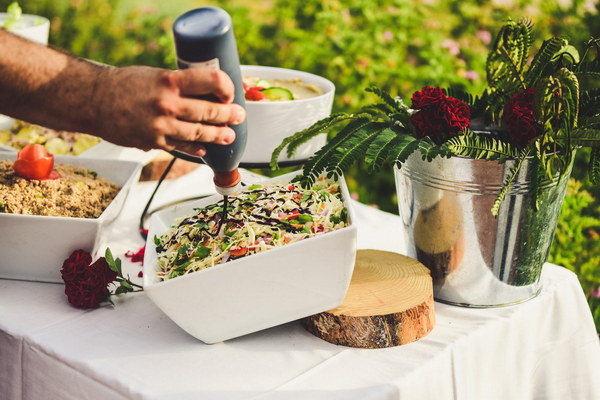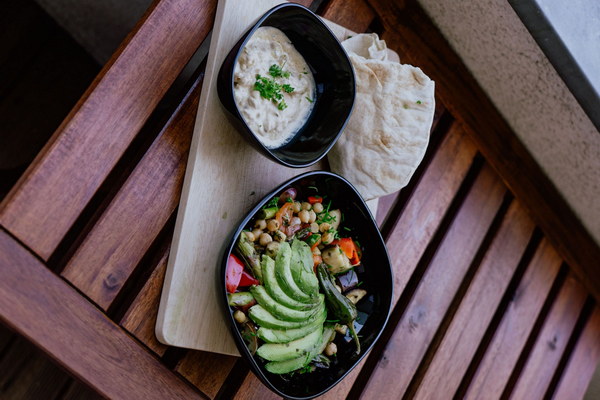Revitalize Your Stomach with This Healing Gastrointestinal Diet
Introducing a healing gastrointestinal diet that promises to revitalize your stomach and enhance your overall well-being. This diet focuses on nutrient-rich foods that are gentle on your digestive system, promoting a healthy gut and reducing symptoms of gastrointestinal issues. Say goodbye to discomfort and hello to a happier, healthier you!
The Importance of a Gastrointestinal Diet
Your gastrointestinal (GI) tract is a complex system that processes the food you consume, absorbing nutrients and eliminating waste. However, various factors, such as stress, poor diet, and infection, can disrupt its normal function, leading to discomfort, bloating, and other symptoms. By adopting a gastrointestinal diet, you can support your GI tract's health and improve your quality of life.
1. Focus on Whole Foods
Start by incorporating whole foods into your diet, such as fruits, vegetables, whole grains, and lean proteins. These foods are rich in essential nutrients and fiber, which promote gut health and help prevent constipation and diarrhea.
2. Include Fermented Foods
Fermented foods, like yogurt, kefir, sauerkraut, and kimchi, are packed with probiotics that support your gut flora. These beneficial bacteria help maintain a healthy balance in your gut, which can improve digestion and reduce symptoms of irritable bowel syndrome (IBS) and other gastrointestinal issues.
3. Embrace Probiotic-Rich Foods
In addition to fermented foods, include probiotic-rich foods in your diet, such as miso, tempeh, and pickled vegetables. These foods can help replenish your gut flora and promote a healthy digestive system.
4. Choose Gentle Foods
Opt for foods that are easy on your stomach, such as bananas, rice, applesauce, and toast (the BRAT diet). These foods are low in fiber and fat, making them gentle on your digestive system and ideal for when you're experiencing gastrointestinal discomfort.
5. Stay Hydrated
Drinking plenty of water is crucial for maintaining a healthy gut. Water helps keep your digestive system moving smoothly and can prevent constipation and bloating.

6. Avoid Trigger Foods
Identify and avoid foods that trigger your gastrointestinal symptoms. Common trigger foods include dairy, fatty foods, spicy foods, and alcohol. Keep a food diary to track your symptoms and identify potential triggers.
7. Eat Mindfully
Take your time to chew your food thoroughly, as this can aid digestion and prevent discomfort. Eating slowly can also help you avoid overeating and reduce the risk of gastrointestinal issues.
8. Manage Stress
Stress can exacerbate gastrointestinal symptoms. Find healthy ways to manage stress, such as exercise, meditation, and deep breathing techniques, to support your gut health.
Sample Gastrointestinal Diet Plan
Breakfast:
- Greek yogurt with a drizzle of honey and a sprinkle of chia seeds
- A piece of whole-grain toast with avocado
Lunch:
- Quinoa salad with mixed vegetables, chickpeas, and a lemon-tahini dressing
- A small apple
Snack:
- A handful of almonds
- A small bowl of mixed berries
Dinner:
- Baked salmon with steamed broccoli and quinoa
- A side of sautéed spinach
Dessert:
- A small bowl of kefir with a drizzle of honey and a sprinkle of granola
Remember, this is just a sample gastrointestinal diet plan. It's important to tailor your diet to your specific needs and preferences. Consult with a healthcare professional or registered dietitian for personalized advice.
Incorporating these tips and a healing gastrointestinal diet into your daily routine can help revitalize your stomach and promote a healthier, more comfortable life. Embrace this journey towards better gut health, and enjoy the benefits that come with it!









